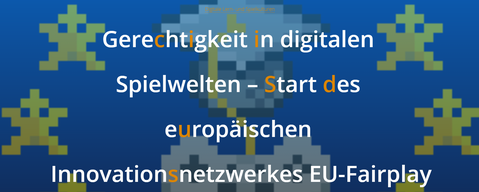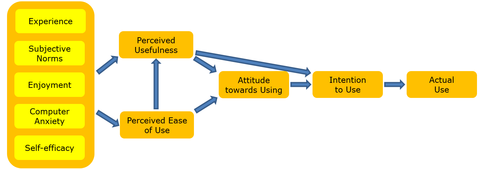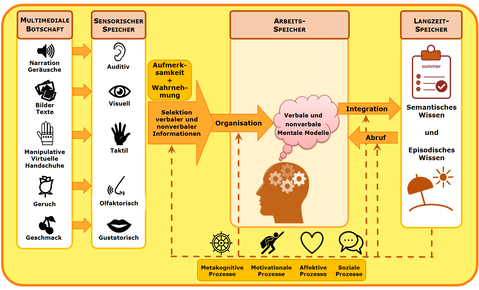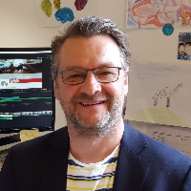Welcome
A Warm Welcome
Dear interested personality,
Please feel invited to explore the aspects of my scientific and instructional life on this page.
 Would you like to quickly find out about my academic career and then possibly get more detailed information on various academic profile pages? What about peer review activities and journal editorial board memberships? Please visit the GENERAL tab!
Would you like to quickly find out about my academic career and then possibly get more detailed information on various academic profile pages? What about peer review activities and journal editorial board memberships? Please visit the GENERAL tab!
![]()
![]() Are you curious about my latest articles and my publications in general? Please go to the PUBLICATIONS tab.
Are you curious about my latest articles and my publications in general? Please go to the PUBLICATIONS tab.
 You can get an insight into my current research areas in the RESEARCH tab.
You can get an insight into my current research areas in the RESEARCH tab.
 An overview of my teaching activities in psychology and educational science at the University of Regensburg and the Dortmund Technical University can be found under the TEACHING tab.
An overview of my teaching activities in psychology and educational science at the University of Regensburg and the Dortmund Technical University can be found under the TEACHING tab.
Thank you for your curiosity,
Klaus
General
Short Profile
I currently work as a researcher and lecturer in the Department of Educational Science at University of Regensburg, Germany. I hold a diploma in psychology from the Department of Experimental Psychology at University of Regensburg. I have also completed my Ph.D. studies (Dr. phil.) on pictures and texts in multimedia learning environments at University of Regensburg. My postdoctoral qualification (Habilitation) was attended by works on modes of text presentation and access to text in computerized learning environments at the University of Regensburg.
My interests include learning with illustrations, instructional design, distance learning, digital game-based learning, technology acceptance, and teacher training.
I have over 20 articles published in journals in international indexes or conference proceedings, two books and 17 book chapters, and over 50 papers presented at national and international conferences.
Websites & Social Links
Scientific and Educational Collaborations
I work occasionally but regularly with Prof. Dr. Mike Altieri, Prof. Dr. Leo Riedl, Prof. Dr. Silke Schworm and Stefanie Stiller .
JCAL Editorial Board Member
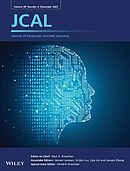 JCAL (Journal of Computer Assisted Learning) is a high-quality international peer-reviewed journal which covers the whole range of uses of information and communication technologies to support learning, teaching, instructional design & development, and knowledge dissemination & exchange. The journal aims to provide a medium for communication among researchers as well as a channel linking researchers, practitioners, and policy makers.
JCAL (Journal of Computer Assisted Learning) is a high-quality international peer-reviewed journal which covers the whole range of uses of information and communication technologies to support learning, teaching, instructional design & development, and knowledge dissemination & exchange. The journal aims to provide a medium for communication among researchers as well as a channel linking researchers, practitioners, and policy makers.
JCAL Impact Factor (Clarivate - Web of Science): 5
Peer Review
See the ![]() Web of Science Profile for a list of the current 120 verified reviews, including those for well-known journals such as JCAL (Journal of Computer Assisted Learning) (37), Sustainability (14), Instructional Science (10), Education Sciences (8), and Educational Research Review (7).
Web of Science Profile for a list of the current 120 verified reviews, including those for well-known journals such as JCAL (Journal of Computer Assisted Learning) (37), Sustainability (14), Instructional Science (10), Education Sciences (8), and Educational Research Review (7).
Publications
Publications, Presentations and Unpublished Works
If you want to get an overview of my whole scientific work, please
- have a look at the list of publications at the
 ORCID profile (https://orcid.org/0000-0002-9636-4516)
ORCID profile (https://orcid.org/0000-0002-9636-4516) - or download the excerpt from my curriculum vitae via "Publications, presentations and unpublished works" as a PDF file.
Recent Publications
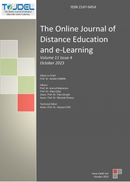 Stiller, K. D., & Wager, S. (2023). Modelling e-learning acceptance of clinical staff using the General Extended Technology Acceptance Model for E-Learning. The Online Journal of Distance Education and e-Learning, 11, 3084-3106.
Stiller, K. D., & Wager, S. (2023). Modelling e-learning acceptance of clinical staff using the General Extended Technology Acceptance Model for E-Learning. The Online Journal of Distance Education and e-Learning, 11, 3084-3106.
Link to publisher
v11i04-11.pdf (tojdel.net)
Link to the pre-print version
Local link
Abstract
Companies still increasingly rely on online training to train employees continuously, effectively, and efficiently. The intention of employees in using e-learning, however, is influenced by various factors. In this study, the influence of external factors on the acceptance of online training was examined in an operational context according to the General Extended Technology Acceptance Model for E-Learning. In this model, computer experience, computer self-efficacy, computer anxiety, perceived enjoyment, and subjective norm were included as important external factors that have been shown to be relevant in numerous empirical studies. In operational contexts, few studies to date have investigated the acceptance model and even less in Europe or Germany. To investigate the influence of external factors, data of 113 employees from a medical institution were collected after participation in an online training course by means of an online questionnaire and were evaluated by regression analyses. The predictors computer experience, perceived enjoyment, and subjective norm were the strongest predictors of perceived usefulness (R2 = 0.59 of the complete model). The perceived ease of use was best explained by the factors computer experience, computer self-efficacy, computer anxiety, and enjoyment (R2 = 0.43 of the complete model). The attitude towards using e-learning and the intention to use e-learning in this study were mainly influenced by perceived usefulness (R2 = 0.67 and R2 = 0.59 of the complete models, together with perceived ease of use). Overall, the acceptance model was largely confirmed in this study.
![]() Stiller, K. D., Schworm, S., & Gruber, H. (2023). Learning with and from illustrations: Cognitive, motivational, affective, social and metacognitive processes. In D. E. Delarue & C. Wagner (Eds.), Challenging the Iconic Turn: Positionen – Methoden – Perspektiven (pp. 285-302 & p. 310). Berlin, Germany: De Gruyter.
Stiller, K. D., Schworm, S., & Gruber, H. (2023). Learning with and from illustrations: Cognitive, motivational, affective, social and metacognitive processes. In D. E. Delarue & C. Wagner (Eds.), Challenging the Iconic Turn: Positionen – Methoden – Perspektiven (pp. 285-302 & p. 310). Berlin, Germany: De Gruyter.
Link to publisher
Challenging the Iconic Turn (degruyter.com)
Link to the pre-print version
http://doi.org/10.13140/RG.2.2.12172.80005
Abstract
Illustrations are an essential component of all kinds of learning material. Although there is a long empirical tradition of investigating learning with illustrations, the research has been primarily based on cognitive theories. Two influential theories that continue to advance the literature is the Cognitive Load Theory and the Cognitive Theory of Multimedia Learning. More recently, research has also focussed on motivational, affective and social processes that are triggered or influenced by illustration design and thus can affect learning processes, but studies in this area are limited. In this paper, we introduce an integrative theory of learning with media that builds on the two cognitive theories, discuss how illustrations affect learning by evoking and supporting cognitive, motivational, affective, social and metacognitive processes, report empirical evidence and present examples of how it can be put into practice.
Research
Distance Education | Online Education
 Distance/Online learning methods are well established in the areas of continuing and higher education alongside the traditional ways of learning and teaching (e.g., Allen & Seaman, 2016). Although 30 years of ample empirical studies have provided sound theoretical and practical knowledge, we still need more insights on how to deal with the persistent problem of high dropout rates (e.g., Lee & Choi, 2011) and to foster successful student learning (Jo, Park, Yoon, & Sang, 2016). One empirical approach is to explore the extent that learners’ characteristics and skills determine (1) the decision to persist or dropout from an online course and (2) the learning outcomes, and to use critical characteristics as starting points for interventions (Akçapınar et al., 2015; Yukselturk & Bulut, 2007). Although these approaches often start with diagnostics of learner characteristics before learning (e.g., Yukselturk & Bulut, 2007), diagnostic methods applied while learning have become popular (Kinnebrew et al., 2013; Lile, 2011). Modern approaches use data mining and learning analytics to identify learners that have problems. These methods attempt to benefit from objective data that are provided by various types of log systems that record online traces (Akçapınar, 2015). Data mining methods might result in better online diagnostics and intervention methods when the mechanisms that underlie usage patterns are known. Hence, relating usage patterns to student characteristics has been recommended to render them meaningful (Akçapınar, 2015).
Distance/Online learning methods are well established in the areas of continuing and higher education alongside the traditional ways of learning and teaching (e.g., Allen & Seaman, 2016). Although 30 years of ample empirical studies have provided sound theoretical and practical knowledge, we still need more insights on how to deal with the persistent problem of high dropout rates (e.g., Lee & Choi, 2011) and to foster successful student learning (Jo, Park, Yoon, & Sang, 2016). One empirical approach is to explore the extent that learners’ characteristics and skills determine (1) the decision to persist or dropout from an online course and (2) the learning outcomes, and to use critical characteristics as starting points for interventions (Akçapınar et al., 2015; Yukselturk & Bulut, 2007). Although these approaches often start with diagnostics of learner characteristics before learning (e.g., Yukselturk & Bulut, 2007), diagnostic methods applied while learning have become popular (Kinnebrew et al., 2013; Lile, 2011). Modern approaches use data mining and learning analytics to identify learners that have problems. These methods attempt to benefit from objective data that are provided by various types of log systems that record online traces (Akçapınar, 2015). Data mining methods might result in better online diagnostics and intervention methods when the mechanisms that underlie usage patterns are known. Hence, relating usage patterns to student characteristics has been recommended to render them meaningful (Akçapınar, 2015).
Game-Based Learning & Educational Games
Game-based learning means using games in educational contexts to reach educational objectives (Connolly et al., 2012). These games could be entertaining games or educational games. While entertaining games are mainly designed for fun, entertainment, and recreation, educational games are a subgroup of games that are designed for educational purposes (Connolly et al., 2012). The main goal of game-based learning is learning and behavioral change (Connolly et al., 2012). Game-based learning is often used in the same context as serious games (Boyle et al., 2016), but serious games are often comprehended in a broader sense. Djaouti et al. (2011, p. 120), for example, defined serious games as “any piece of software that merges a non-entertaining purpose (serious) with a video game structure (game).” This definition includes also purposes that have both non-entertaining and non-educational purposes. More often, the broader purposes of serious games are scratched by naming (1) markets like government and non-governmental organization, defense, healthcare, marketing and communication, corporate, industry and education, and (2) purposes like games for health, advergames, games for training, games for education, games for science and research, production, and games as work (Sawyer and Smith, 2008).
I am primarily interested in educational games and their motivational, affective, and cognitive outcomes when playing/learning with them, as well as learner characteristics that influence the success of gameplay and learning.
Technology Acceptance
Instructional Design & Multimedia Learning
Teaching
Teaching Experience
 If you want to get an overview of my whole teaching experience, please download the excerpt from my curriculum vitae via "Teaching Experience" as a PDF file.
If you want to get an overview of my whole teaching experience, please download the excerpt from my curriculum vitae via "Teaching Experience" as a PDF file.
Regensburg University, Chair of Pedagogy I, since 2013
Since the winter semester 2013/2014, I have been teaching in the Bachelor of Arts and Master of Arts programs in Educational Science, Educational Science as a minor subject, and in teacher training. In particular, I have been involved for years in the extension course Media Education according to LPO I § 110b (old LPO) and § 114 (new LPO) as a lecturer and examiner (see also courses at the Chair of Psychology VI at the University of Regensburg). Media didactics is accordingly part of this training. In addition to the established teaching methods, more modern methods from the field of e-learning are also used.
In the last semesters I have mainly held the seminars listed in the following table:
| Summer semester | Winter semester | |
| BA Educational Science | Education evaluation research methods Evaluation of education and training system Accompanying seminar to bachelor thesis | Advanced course in pedagogy and educational science: Image and text design in instructional media and their effects Introduction to empirical research methods I |
| MA Educational Science | Advanced course I: Theories on motivation and cognitive and social learning (Theoretische Vertiefung I: Kognitive, motivationale und soziale Theorien des Lernens) | |
| Teacher training | Design of learning and test materials (Gestaltung von Lern- und Testmaterialien) | Design of learning and test materials (Gestaltung von Lern- und Testmaterialien) |
Regensburg University, Chair of Psychology IV, 1996-2013
I can prove relevant knowledge in the training of psychology and pedagogy students (in diploma and since winter semester 2010/2011 BA programs), teacher trainees and minor students in psychology (e.g. information scientists). The chair was responsible for the teacher training as well as for the psychology training in the main studies in the diploma program as well as in the BA/MA programs. All courses mentioned were furthermore involved in other branches of education, e.g. the EDP supplementary education of the Computer Center of the University of Regensburg, the study unit "Stage, Film and Media" in the freely combinable minor of the Faculty of Philosophy IV, the study unit "Gender Studies" of the Faculty of Philosophy II or the study unit "Information Literacy" in the freely combinable minor of the Faculty of Philosophy IV and the University Library of Regensburg. In addition, I had been involved for years in the extension study course Media Education according to LPO I § 110b (old LPO) or § 114 (new LPO) as a lecturer and examiner (see also Academy for Teacher Training and Personnel Management, further education measure Media Education). Media didactics is accordingly part of this training. In addition to the established teaching methods, more modern methods from the field of e-learning were also used.
Dortmund Technical University, Chair of Educational Psychology, 2007-2010
I can prove relevant knowledge in the teacher training according to LPO 2003 in North Rhine-Westphalia, in the teacher training of Bachelor and Master students (pilot project "Gestufte Studiengänge in der Lehramtsausbildung" at the TU Dortmund University) and in the training of minor students in psychology (e.g. computer science, journalism, rehabilitation sciences, educational sciences). The chair at the Psychological Institute of the Technical University of Dortmund was responsible for teacher training as well as for the minor subject training in psychology in diploma as well as BA/MA courses. In addition to the established teaching methods, modern methods from the field of e-learning were also used.
Regensburg University, Medical Psychology Unit, 1995-1996
At the beginning of my university career, I held exercises on psychological topics (team building, client-centered interviewing, etc.) for preclinical medical students. The exercises accompanied the lectures in medical psychology.



